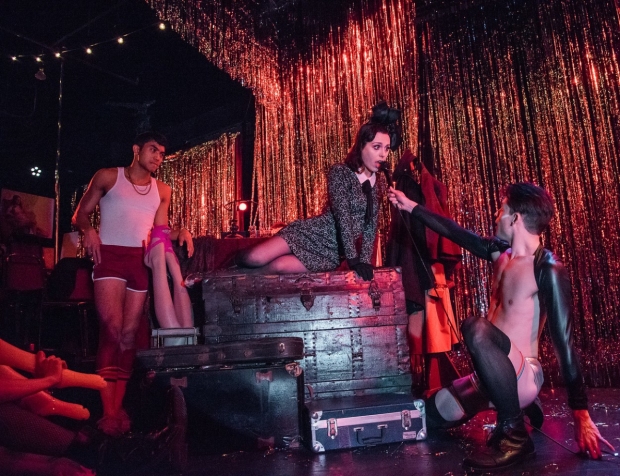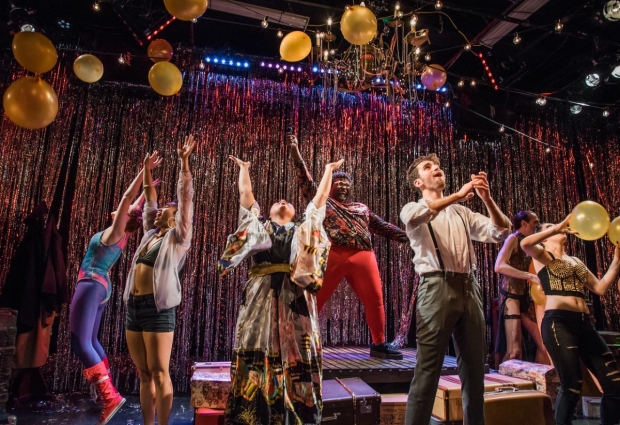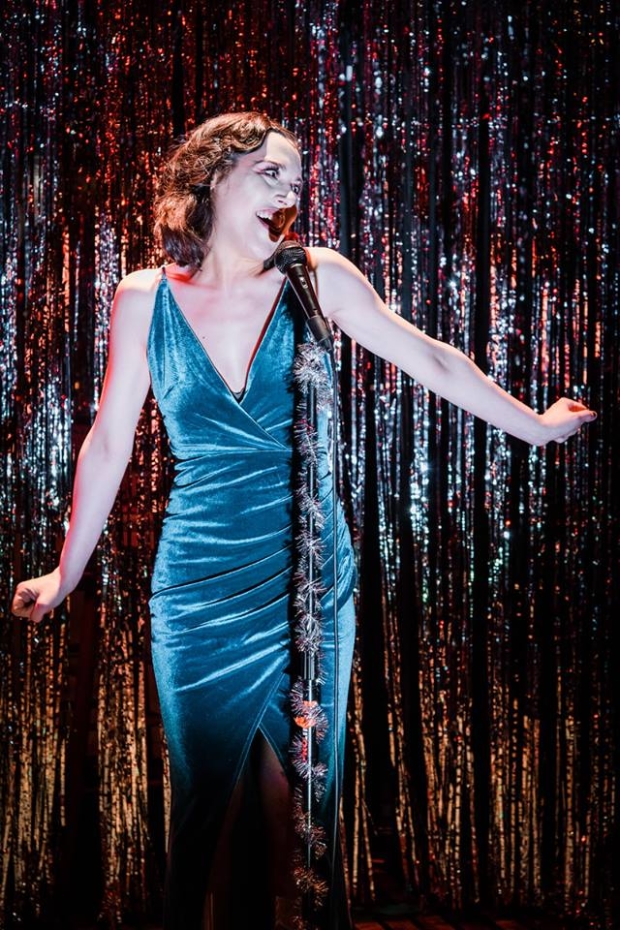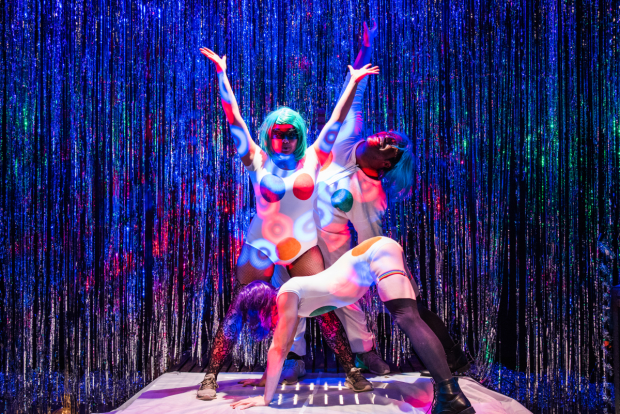Cabaret

(© Reiko Yanagi)
"Intermission begins when you hear Beyoncé" is not something you'd expect to hear during John Kander, Fred Ebb, and Joe Masteroff's Cabaret. But directors Hunter Bird and Chloe Treat's new take on the classic, at the Secret Theatre in Long Island City, is not your average production. Cabaret is already a concept musical, one that uses its songs to comment on the action of the story, but Bird and Treat have added another layer on top of that. This is a Cabaret set simultaneously in 1930s Berlin and in the present day.
This take certainly makes sense in an era where swastikas are being drawn on subway cars. The trouble is, Cabaret, inspired by John van Druten's play I Am a Camera and the Berlin stories of writer Christopher Isherwood, is a piece of fairly recent social commentary to begin with, a parable for the complicit nature of humankind that happens to be set at the start of World War II. Comparisons to politics are already built into the text, and Bird and Treat have forced more into what exists when it isn't necessary to do so. Where they do get it right is with their multicultural cast, all of whom deliver beautifully deep performances, ultimately giving this Cabaret the tragic feeling it longs to have.
Cabaret places side by side the story of two vastly different would-be couples: the English cabaret chanteuse Sally Bowles (Natalie Walker) with the bisexual American novelist Cliff Bradshaw (Jesse Weil), and the German boardinghouse owner Fraulein Schneider (Sue Lynn Yu) with Jewish fruit seller Herr Schultz (Mark Coffin). Sally is the star performer at the Kit Kat Klub, a hedonistic German nightspot presided over by the libertine Emcee (Larry Owens). Little do they all know that their worlds are about to come crashing down as the Nazis rise to power.

(© Reiko Yanagi)
The Emcee also serves as the show's narrator, presenting sexually charged production numbers featuring his ensemble of sexually fluid dancers. Wisely, the directors have gone in a different direction than the now-iconic renderings of the Kit Kat Klub dancers as ragdoll heroin addicts from Sam Mendes and Rob Marshall's oft-repeated 1998 Broadway revival. Owens himself couldn't be further from the mold of Joel Grey and Alan Cumming. He instead portrays the Emcee as a big and brassy African-American man who delightfully channels Drag Race-era RuPaul.
Unfortunately, the directors haven't really managed to create a solid through-line that extends to the ensemble, who are a mishmash of personalities — geisha, fabulous drag queen, escapee from a Jane Fonda workout video. As a result, the club scenes play fast and loose with the script, diluting the power they would normally have. (Only during "If You Could See Her Through My Eyes," the Emcee's duet with a gorilla, do these sequences hit the right emotional notes.)
This Cabaret retains its power in the book scenes, highlighted by four steely central performances that aren't bogged down with business. Yu delivers a particularly mesmerizing rendition of "What Would You Do?", a paean to capitulation, while Coffin is an eternally genial presence. It's impossible not to be charmed by their duet over a pineapple, "It Couldn't Please Me More." Weil injects Cliff with a great deal of personality, an impressive feat considering how often the character feels peripheral to the story.

(© Reiko Yanagi)
But the real highlight is Walker as Sally Bowles. Resembling Wednesday Addams in Antonio Consuegra's fashionable costumes, Walker's Sally is one who doesn't float along on delusions of grandeur, instead shedding them the second she meets Cliff and gradually becoming a headstrong woman who learns how to think for herself. It's a take on the role that becomes even more heartbreaking as you learn how their romance ultimately plays out. Though Walker was suffering from a chest cold at the time, her execution of the eleven o'clock title number was still a heart-stopping experience.
It's because of perfectly marvelous elements like this that the weaker aspects are harder to overlook. Perhaps the most egregious misstep, though well-intentioned, was ending the first act by imploring the audience to fill out postcards to send to organizations like Planned Parenthood and the ACLU. The stark jolt of the first act ending is enough for the audience to want to sit with during intermission. The postcards and Beyoncé would be better left till the bows, thus easing us back into the real world and allowing us to connect, for ourselves, the past with present-day atrocities.

(© Reiko Yanagi)











